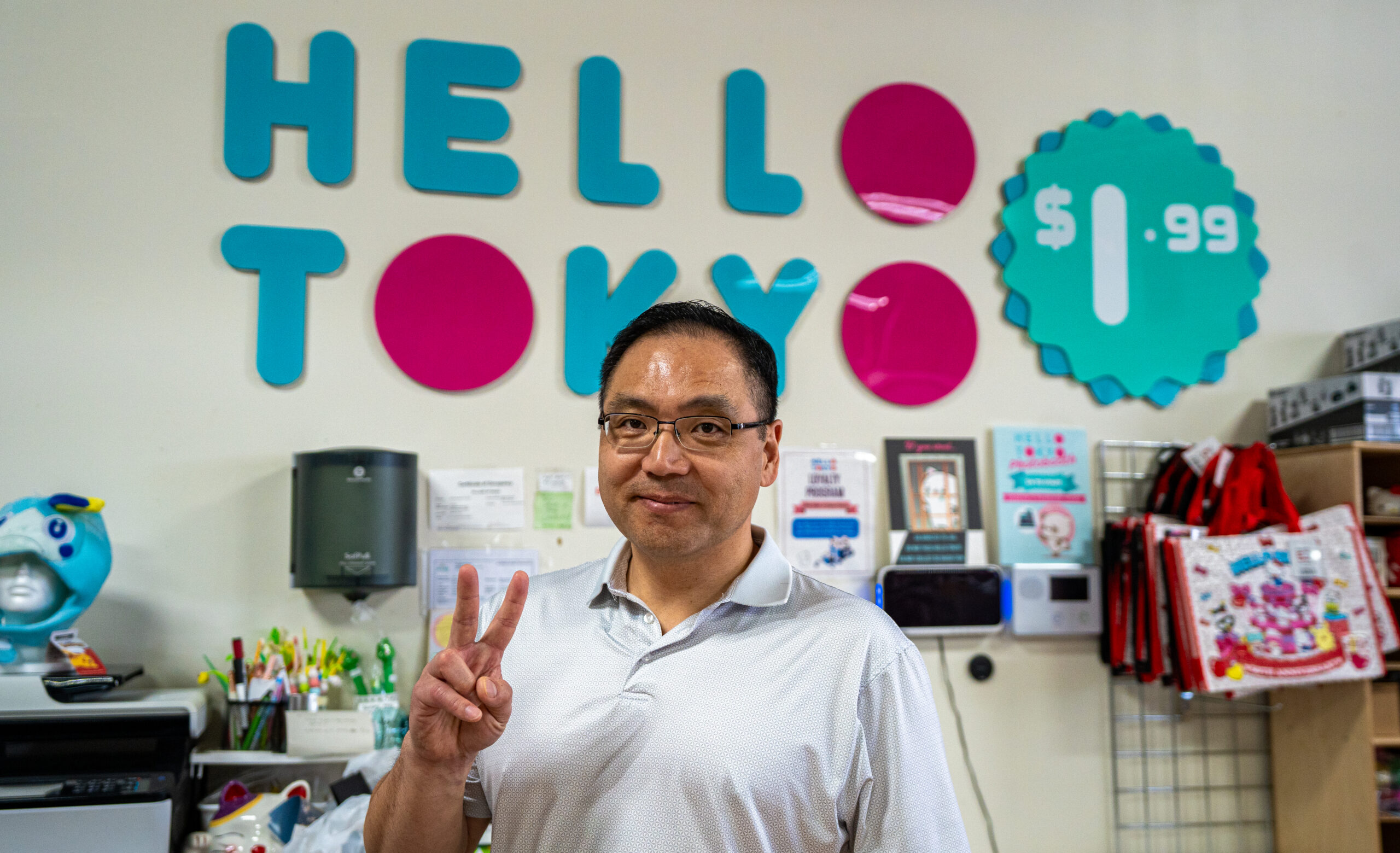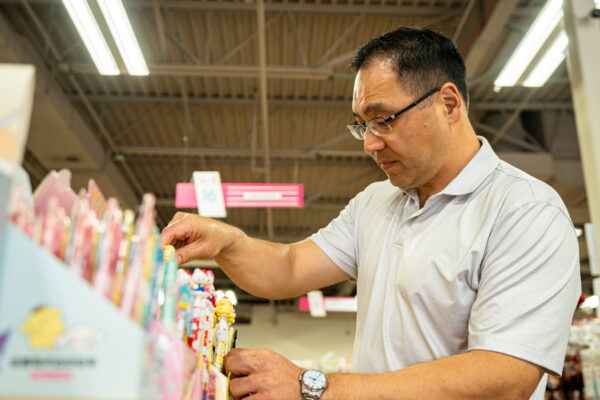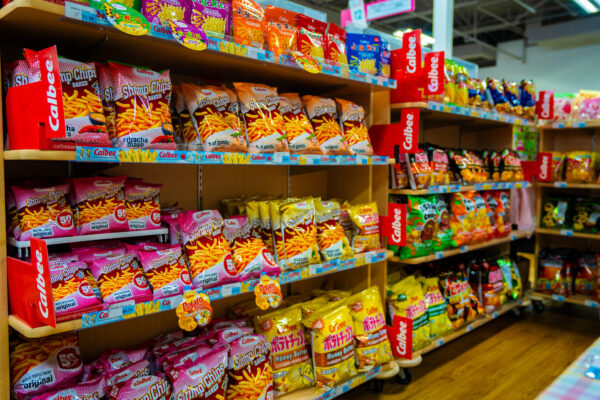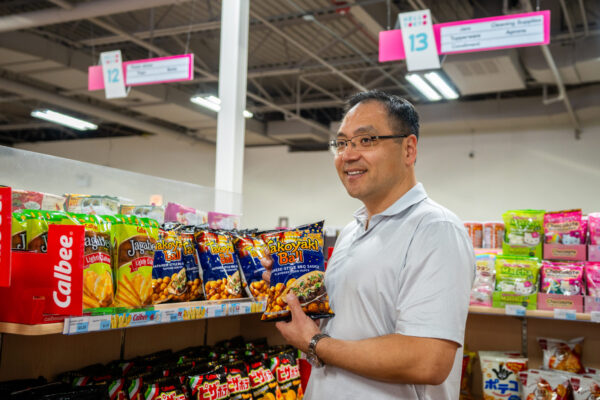Retailers like Jin Park, owner of Hello Tokyo in the Village of Niles, Illinois, enrich our economy and strengthen our communities, even during the uncertainty of increased tariff expenses. To better understand how Hello Tokyo is dealing with the escalation of existing tariffs, we sat down for a conversation with Jin.
Hello Tokyo is a fun, high-quality Japanese discount store located in the northwest suburbs of Chicago in the Village of Niles. It offers shoppers a unique retail experience by stocking a wide array of products including beauty supplies, household goods, snacks, toys, figurines, and items for the lawn and garden, all with a distinctive Japanese flair of “kawaii,” which means “super cute” in Japanese.
“There are dollar stores over in Asia that are really flourishing,” said Hello Tokyo Owner Jin Park. “We wanted to mimic that Japanese dollar store style in the Midwest.”
The store bills itself as a Japanese dollar store with many products starting at $1.99, and although low prices are the foundation of Hello Tokyo, there is higher ticket merchandise available for purchase.
One hundred percent of the merchandise at Hello Tokyo is exported from overseas with a large amount of the inventory originating in Japan and China. Jin says that U.S. manufacturers do not produce the products at the price points his customers are seeking, and so his store is directly in the crosshairs of the global tariff battle now taking shape.
We sat down with Jin and asked him how higher tariffs on his merchandise might impact the future of Hello Tokyo.
IRMA: How do you source the merchandise that is sold at Hello Tokyo?
JIN: Many of our products are sourced from manufacturing companies that come from China, Vietnam, and a majority of our products are manufactured in Japan. Especially a lot of our food products. But all of the products we have are from Japanese owned companies.
IRMA: Tell me how increases in tariff rates may impact Hello Tokyo.
JIN: The tariffs are a challenge for us right now. We are kind of in a holding pattern with bringing in more products because we’re really unsure of what new tariffs will do to our margins. Right now, we have a container in Japan that just sitting waiting to be shipped.
IRMA: So, you have products waiting to be sent to your store that are in Japan, but you are waiting to have it shipped here because of increased tariff costs?
JIN: Yes, we’re not shipping yet, because we know the current tariff rate would basically put us out of business. We’ll have to see how it goes in the next couple months before we make a move and figure out our alternate plan.
IRMA: Are you not bringing in any new product into your store?
JIN: We’ve basically stopped (adding new products), and hopefully our current inventory will last until the whole tariff situation is resolved. I probably only have an inventory stockpile of two to three months before we’re all out. So, we have about one to two months to react. Whether we’re bringing in new product or trying to find another source or figure out another avenue to bring in more merchandise. But we will run out.
IRMA: Do you think you’ll find another solution within the next couple months?
JIN: We definitely have to find some solution. Whether it’s finding another source from a different country that has lower tariffs or finding a way from different distributors. We definitely do need to have a solution within the next month.
IRMA: So, is it fair to say the tariffs have put you in a bind?
JIN: Absolutely. The tariff situation has definitely put us in a bind. We’re hoping it all works out in the end. But it definitely has put us in a bind. We can’t currently stock or restock inventory in our store.
IRMA: Why can’t you just charge higher prices here?
JIN: We can’t charge higher prices. We would like to. But we do have competitors that have bigger companies, bigger holding power and a stock of inventory. They can wait us out. If we start charging $3 an item and they’re still at $2, we’ve lost all of our customers and we’d be bankrupt in three months.
IRMA: What do you want the people in Illinois to know about the current tariff situation?
JIN: I’m hoping in the long run that it will work out for everyone. I think as a nation, we need to be on a level playing field against other countries. I’m hoping the government knows what they’re doing and will figure out a way to make it amenable for everyone. We’re hoping that will play out in the next few months. Right now, we’re just in a holding pattern to see what we’re going to do next, because there’s still a lot of uncertainty.
To learn more about Hello Tokyo: https://www.hellotky.com






